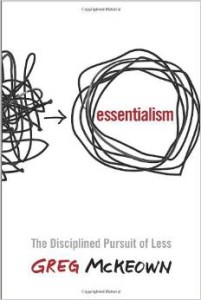Let’s face it, we live in a busy world. Demands for our time can be immense, despite seeming innocuous at first. If we’re not careful, a well-planned day that’s going “according to plan” can be derailed in a heartbeat by another person’s agenda or emergency.
We pile on tasks, projects and commitments. This leads to more of our waking hours spent at work. To our credit, we get more done. And so we are given more responsibility, which means – more work.
We say “yes” even though we are already over-booked or spread too thin. It’s like we don’t know how to say no. Sound familiar? Like I’m describing you? Yea, I know; me too…
I used to think that I could work my tail off and get by with little sleep. Hey, I was busy and there was no time to stop; right?
And I definitely didn’t want to be known as a slacker. Burning the candle at both ends was like a badge of honor. But that was delusional thinking.
Then I was fortunate to have discovered the importance of rest. And how crucial rest is to our mind and body by recharging every night with 7 to 8 hours of quality sleep.
The takeaway here is:
If we don’t put boundaries in place, our time can be hijacked without even realizing it. By the way, I used to think I could multi-task too. And by multi-tasking I thought I was being super-productive and getting more done.
Again, I was delusional. But this post is not about me or multi-tasking, so let’s get back on track.
Last year I read the book “Essentialism” by Greg McKeown, which I highly recommend. Greg helps us understand that we can’t possibly do everything. As he puts it, “Essentialism is not about how to get more things done; it’s about how to get the right things done. It doesn’t mean just doing less for the sake of less either. It is about making the wisest possible investment of your time and energy in order to operate at our highest point of contribution by doing only what is essential”.
In this post, I’ve gathered some of the best ideas that have been written on the importance of getting quality rest, and the negative effects of sleep deprivation.
So rather than restating what’s already been written, I will summarize it, include my own thoughts, and then provide links to articles that I hope will be helpful to you.
If you’re not getting 7 to 8 hours of quality sleep every night, then your mind and your body can not function properly. Your waking hours will be spent in a fatigued, zombie-like state.
And although you may think that you’re doing fine, and able to power through your day in an alert and productive way, studies will prove that you can’t.
Your mind and body need adequate rest to recharge, every night.
If you’re a driven, “Type A” person, you may believe that your shortened sleep patterns are justified. But by working more and sleeping less, you are NOT being the uber productive person that’s getting more done like you think you are.
You’re merely producing lower quality work by operating in a diminished capacity and sacrificing your long-term health & well-being by not getting enough ZZZ’s.
Your energy level during your waking hours will fade. This will eventually begin to take its toll on your mind and body. Your memory and cognitive ability will soon be affected.
This impaired state will impact your work, focus, productivity, relationships, personality, reputation, and your health; as if that weren’t enough.
Can ‘ya hear me?
So what are the negative effects of sleep deprivation?
According to WebMD, they include:
- Decreased performance and alertness
- Memory and cognitive impairment
- Stressed relationships
- Poor quality of life
- Occupational injury
- Automobile injury
- Editor’s note: You run the risk of sleeping during a meeting, in front of your boss or co-workers (like blue-shirt boy above).
Some of the medical illnesses that result from long-term sleep deprivation include:
- High blood pressure
- Heart attack
- Stroke
- Obesity
- Depression, anxiety and other mood disorders
- Diabetes
- Increased mortality risk
Long-term sleep deprivation also:
- Kills your sex drive
- Ages your skin
- Makes you forgetful
- Can cause weight gain
- Impairs judgement
- Makes you moody, emotional and quick to anger
- Increases the rate of accidents
- Decreases concentration & productivity
- Causes your immune system to operate at a lower capacity
Sleep deprivation isn’t just limited to a personal choice, like working longer hours in an attempt to improve your business or advance your career.
Other reasons that can seem out of your control include:
- A health or medical condition
- A partner that snores
- Sleep apnea
- Acid reflux
- Physical pain
- Restless leg syndrome
- Frequent urination
- Stress and worry
- Jet lag
- Interrupted sleep patterns that distract or reduce REM sleep
And then there are other causes of insufficient sleep that are well within your control, which include:
- Caffeine & alcohol consumption just before bedtime
- Trading sleep for additional time – to work or play
- Medication and vitamin supplements
- A pet that sleeps with you
- Electronics – TV, smartphone, tablet / pad, video games…
- Falling asleep on the couch instead of going to bed
What can you do to get more ZZZ’s?
- Exercise
- Meditate
- Lose weight
- Take power naps
- Go to bed early and wake up early
- Get healthy so you can reduce or eliminate your prescriptions
If you’re not getting enough sleep every night, over time, one could say that you are sleeping your life away. Let that one sink in. So do whatever you can to make better sleep a priority!
Now let’s take a look at links to some great resources:
- The Effects of Sleep Deprivation On The Body: http://www.healthline.com/health/sleep-deprivation/effects-on-body
- Why Americans Don’t Get Enough Sleep: http://www.everydayhealth.com/news/why-dont-americans-get-enough-sleep/
- Top 10 Reasons Why You Can’t Sleep: http://www.prevention.com/health/sleep-energy/10-reasons-you-cant-sleep
- How To Sleep Better: http://www.helpguide.org/articles/sleep/how-to-sleep-better.htm
- Understanding Sleep: http://www.ninds.nih.gov/disorders/brain_basics/understanding_sleep.htm
In closing, I can’t stress enough how important sleep is to your mind and body. A good night sleep is crucial to your health and well-being.
In fact, getting 7 to 8 hours of quality sleep every night should be one of your top priorities. Make it part of your daily routine by building it into your busy schedule.
So what keeps you up at night? Have you found a way to overcome it? Share your comments below.
Thank you for sharing your time with me.
I hope you found value in this post.
Now it’s time for YOU to take action…
I’d love for you to let me know what you think by leaving a comment. Is the content valuable and helpful? Did anything resonate? What else would you like to see in future posts? I welcome your feedback.
What’s your Win to be Thin?
If you know someone that can benefit from this content, share it with them. And if you like what you see, SUBSCRIBE for automatic updates when new posts are published.
You can also LIKE US on Facebook, and spread the word about www.thin2win.net with your friends, family and social circles.






